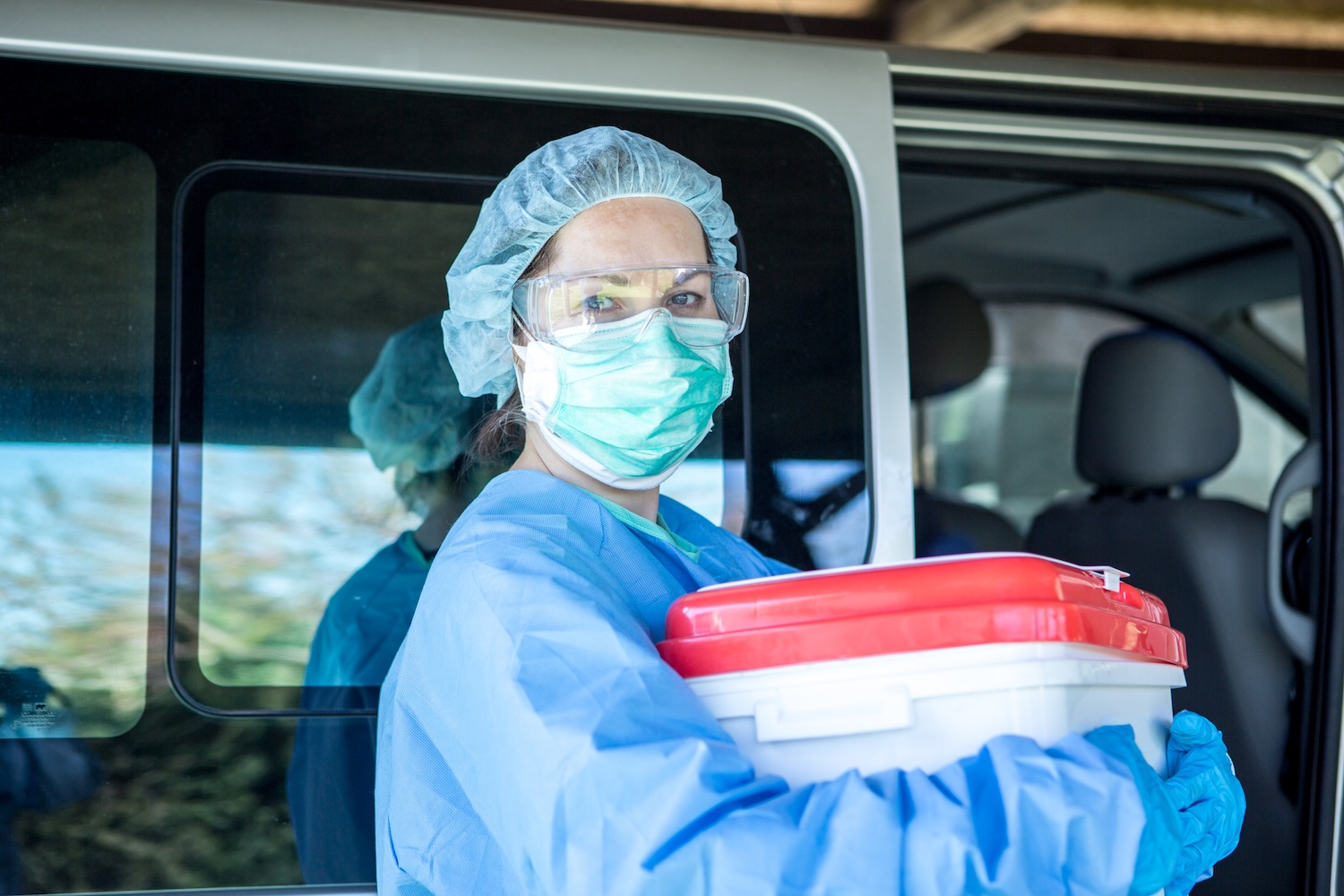Bulgaria fails to identify an estimated 300 potential organ donors annually, with only a fraction of deceased patients in hospitals recognised by doctors as suitable for donation, Health Minister Silvi Kirilov has admitted.
Since the start of 2025, only four liver transplants have been performed in Bulgaria, while the total number of lives saved through organ donation this year remains extremely low. Around 900 people are currently waiting for a transplant, most of them kidney patients.
The health minister acknowledged that systemic problems contribute to the country’s low transplant rate during an event dedicated to organ donation at the Military Medical Academy in Sofia. However, he has yet to offer a concrete solution to the organisational failures and lack of medical training in donor identification.
“To set in motion a donor process requires objectifying clinical symptoms. This is a complex process involving social and organisational factors,” Kirilov said.
Falling behind
Professor Nikola Vladov, head of the Liver-Pancreatic Surgery and Transplantation Clinic at the Military Medical Academy – the only hospital in Bulgaria performing liver transplants – noted that Bulgaria ranks last in the EU for the number of transplants.
“We are ready to respond at any hour when we get the call. Unfortunately, there have been only four donors this year,” Vladov said.
Ivanka Dineva, director of the Executive Agency for ‘Medical Supervision’ (EAMS), responsible for promoting organ donation, did not acknowledge management issues within the system, instead emphasising the need for public awareness.
“The topic of organ donation must be part of our everyday lives,” she said.
Official data from the past three years highlight Bulgaria’s severe transplant crisis.
In 2022, 59 Bulgarians received transplants abroad, compared to only 20 donor situations in the country. In 2023, 93 Bulgarians underwent transplants abroad, while only 42 were performed domestically. In 2024, 75 Bulgarians travelled abroad for transplants, with only 34 procedures performed in Bulgaria.
Another major issue is that no lung transplants have been performed in Bulgaria since 2019, and no hospital in the country is currently equipped to perform them.
Although 31 major hospitals are licensed to identify and maintain potential brain-dead donors, only 10 have reported donor cases over the past three years.
Donation funds probe
The EAMS is now under investigation by financial authorities over suspected misuse of public funds allocated for organ donation awareness and training programmes.
Investigations by Bulgarian outlets OFFNews and Capital earlier in 2025 revealed questionable spending under the National Programme for Promoting Organ Donation and Supporting Transplantation.
Reporters found that €90,000 was paid to unqualified transplant instructors for remote online training of 47 individuals, while a Bulgarian advertising agency received funding to run social media campaigns with minimal engagement.
A wedding photography company won a public tender to film a documentary on transplantation, and Medical Supervision financed motorcycle parades, marathons, and rose-planting events, costing nearly half a million euros but yielding no increase in transplants.
Signs of political protection
“My greatest disappointment, though not a surprise, is that the internal audit ordered by the minister of health following our investigation found no violations by the [EAMS],” journalist Yanka Petkova told Euractiv.
Petkova, a health reporter from OFFNews who worked on the investigation, said that the violations are “obvious even without an in-depth inspection.”
According to Petrova, a company was registered just days before signing a contract with the EAMS; some firms carried out assignments entirely unrelated to their declared activities; and an online training course worth 184,000 euros was organised without a public tender – by a centre that normally offers language and carpentry lessons.
“All this is easily verifiable, yet the health ministry’s audit report failed to notice any of it,” Petkova said, adding that she faced significant obstacles in obtaining access to the audit findings. “This reinforces our impression that the EAMS – or at least its executive director – enjoys political protection,” she said.
Conflict of interest
Another problem, she pointed out, is that the EAMS also serves as the Agency for Transplantation, which creates a conflict of interest: it is effectively tasked with monitoring itself.
Petkova warned that covering up irregularities within a body meant to supervise medical service providers and investigate patient complaints discourages whistleblowers and deepens the perception of corruption. “Such oversight, combined with a lack of competence, explains why donation and transplantation activities in Bulgaria have almost come to a standstill,” she concluded.
The pro-European opposition coalition We Continue the Change – Democratic Bulgaria, the second-largest group in parliament, called for the resignation of the agency’s management, but the motion was rejected.
[VA, BM]
